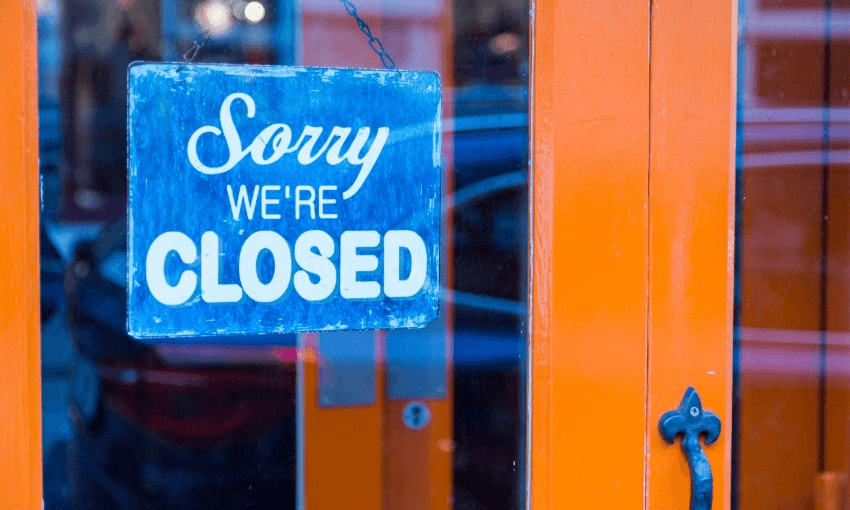Today at noon, Auckland moves into alert level three while the rest of New Zealand moves into alert level two. Here’s how it will affect businesses and what you can do to help.
Three days at a higher alert level may not seem like much, but for many fragile businesses still recovering from the devastating effect of the initial lockdown, the loss of trade could be the straw that break the camel’s back.
For Auckland, alert level three means businesses will be able to trade, provided they carry out contactless transactions and their staff meet public health measures such as social distancing. For the rest of New Zealand, level two means businesses like restaurants and cafes can open and trade provided that can adhere to the three Ss: seated, separated and served by a single server, and impose a limit of 100 guests.
In any case, the restrictions from both alert levels will mean many businesses will see a partial or a complete loss of income, which for some will be too much to bear.
Julie White, CEO of Hospitality NZ told RNZ’s Morning Report that the changes would be difficult and her industry would certainly need more government support.
“We’re devastated…it’s significant. We had essentially operators having to shut their businesses and holding their breath for Friday. Either way it’s a massive effort to close their businesses down.”
While the government still has $20b remaining from its Covid-19 response package put aside for an emergency, more business support or a further extension to the wage subsidy has not yet been announced. So to help businesses get through the (hopefully brief) spell, it’s up to customers to rally around and support them until they’re once again allowed to operate as normal.
Here are three ways you can continue to support your local businesses, depending on their situation.
Continue making online and contactless orders
Under alert level three, Auckland businesses will be able to trade if they can carry out contactless transactions where staff are distanced and aren’t mingling with customers. Many cafes, restaurants and retailers will be poised to pivot quickly since the last lockdown, with a website, app or phone-based service ready to go and a way to deliver orders to customers without physical interaction.
So if you have a hankering for any of your usual food or drink or want to buy an item from a retailer, give your local business a call or put through an order online and arrange a delivery or a contactless collection – keeping in mind public health measures like distancing and hygiene.
Buy a voucher
For the businesses that cannot open or trade at all, such as salons, hairdressers, massage parlours, and spas, the best way to help them through the next period is to buy a voucher.
SOS Business is a platform that emerged in response to New Zealand’s level four lockdown in March and April, and was an immediate and immensely popular way for people to help keep cash flowing into local businesses. Customers can purchase a voucher for their favourite business, and then redeem it for a product or service once that business is able to reopen.
The entire value of the voucher goes to the business, which can register on the site for free.
Founder David Downs said the site was kept running since the last lockdown and had already seen a spike in activity from both vendors and customers since the news of level three broke last night.
“The big feedback we got from vendors after the first lockdown was that the cash flow really helps them. These are companies that have still got to pay the rent, they’ve still got to pay all sorts of bills, and so that trickle of money is critical.
“The other big thing is that from a mental health point of view, the vendors found it so uplifting and rewarding. Vendors said that the support they received from customers provides an overwhelming sense of relief.”
Don’t panic buy
Contrary to primal instincts, panic buying does nothing but create chaos, traumatise supermarket staff and put needless pressure on grocery supply chains, leading to further delays and shortages. Yet already there is news of widespread – and sometimes aggressive – panic buying across Auckland.
As essential services, supermarkets will be open throughout all alert levels so there’s no risk of being shut out and going hungry. We also live in a country blessed with extraordinary food production resources, so there’s very little chance of any systemic shortages.
However, because of wanton panic buying during the last lockdown, some products like flour and canned goods were often out of stock on supermarket shelves, as the delivery and logistics systems couldn’t keep up with the demand. It also caused a tremendous amount of stress and anxiety for the already busy supermarket staff.
Supermarkets have reportedly already applied a purchase limit on some products to prevent another such development, along with limiting numbers of customers and managing crowds at supermarkets across New Zealand.
In any case, the best way to shop is your normal way – staying calm, being polite and buying the amount of groceries you’d normally buy.
